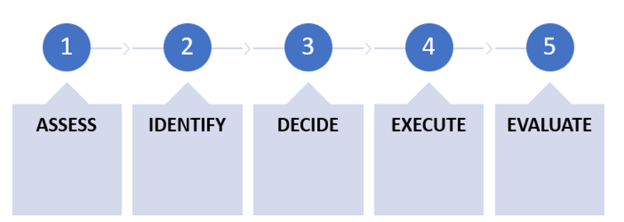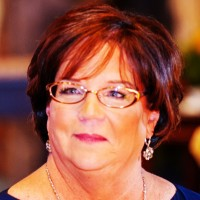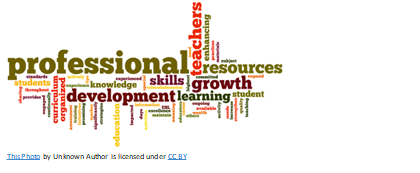First posted on the ORIGINal Thoughts Blog
By: Judy Connnors, MA
Owner, Do It Write Editorial, LLC
LinkedIn: https://www.linkedin.com/in/judy-connors
Take Home Points:
When I started my first job in the early 80s for a well-known Fortune 500 company, my introduction to professional development (PD) was a three-day retreat to a fancy resort to learn how to play golf. Deals are struck, I was told, on the golf course and playing is essential to performance. Each year, there was another golf refresher as part of our PD plan. So, while I learned how to birdie, chip, and fly the green, my professional skills training for my actual role was left to on-the-job trial and error.
A few years later as I entered the non-profit publications world, my PD shifted to on-site meetings, in-house trainings, and particular skill building through certification classes. I attended lunch ‘n learns hosted by publishers, took medical writing and editing classes, and sat for certification exams. When webinars, podcasts, and online learning became popular, these were an additional option and employees’ annual goals frequently included attendance at one or more of these trainings.
So, what do you think? Would you consider both of my experiences—learning to play golf and taking courses to fine-tune my core job responsibilities—as PD? I would say YES. My daily work benefited from both of these opportunities by incorporating hard and soft skills into my professional training. It took time and education to master the components of my new role (hard skills), but identifying nuances of an industry, learning the key players and, most importantly, developing the necessary skills to work with a team and present as a professional at all times (soft skills) were definitely honed at events such as golf outings, client dinners, and other informal training environments.
While the delivery method and sophistication of developmental content and topics has dramatically changed over the years, one thing has not: Employees and contractors alike need and want professional development to advance in their roles and broaden their knowledge base. And they largely rely on employers/clients to support these endeavors and subsidize these expenses. Professional development is described by Indeed, one of the largest job-search engines and all-in-one hiring platforms, as “improving yourself through learning and training to advance your career. Companies may offer training sessions to further teach their employees, but an employee typically works on their own professional development independently… such as taking classes, going to workshops, or teaching themselves new skills. Professional development can also refer to staying up-to-date on new trends within your field and applying new practices to your current methods.” Professional development, it would seem, is a shared responsibility between employee and employer.
Enter March 2020, and the worldwide pandemic. Early on, it was believed COVID-19 could be dealt with and contained; however, it quickly became apparent that it was to be with us longer than anyone anticipated, exacting a devastating human toll globally. While acknowledging the unimaginable loss of life, livelihood, and long-term health for so many, the focus of this article is on the pandemic’s impact on the growth and professional development of working individuals and their career paths.
“The disruptions wrought by the pandemic on worldwide educational activities have been profound,” details the Organization for Economic Co-operation and Development and the International Association of Universities in their late-2020 report. “It is in the area of continuing professional development where restrictions and pandemic-related travel embargoes have intersected, that the impact of COVID-19 has been most pronounced.”
In 2021, the Center on Education & Labor at New America partnered with the Swiss University ETH Zürich to administer the 2021 Employer Training Survey (ETS) during the unprecedented economic disruption caused by the coronavirus pandemic. With a US unemployment rate of nearly 14% and low labor-force participation in late 2020, this survey showed that 40% of companies reported cancellations or delays of employer-provided training and concluded that “Participants in professional development programs and internships, both less structured training models, suffered significantly more severe effects on skills development than participants in on-the-job training programs.”
The pandemic has had a significant impact on the way employees learn and develop in the workplace, wrote Heidi Corrigan in her November 2023 blog, entitled Training And Development In A Post-COVID-19 Workplace. “With the shift towards remote work, traditional training methods, such as in-person workshops and seminars, were no longer feasible. This forced organizations to adapt and find new ways to provide learning opportunities for their employees.”
By April 2020 countries’ borders were sealed, businesses shut down (leading to massive job losses), and schools were closed. The world was operating fully remotely. It is obvious nothing would look the same for the foreseeable future and families and friends scheduled regular Zoom calls to keep in touch. Organizations, too, needed to quickly pivot in order to keep their workforce connected and committed. Suddenly, a multitude of GoTo Meetings, online trainings, and virtual seminars replaced in-person events. Large conventions and conferences were cancelled, affecting business development and advanced learning for professionals.
A new phenomenon, work from home, became standard business practice for all except essential workers and, suddenly, people were at their kitchen tables and home offices, balancing work and family demands. While flexible and often convenient, challenges abound—access to technology and software, internet, company intranet, and sustainable connectivity, just to mention a few. Many employees struggled with the sudden lack of office support and comradery and felt isolated. Additionally, not all organizations had the resources to invest in a virtual work environment and struggled with introducing company-wide work processes and reporting structures.
By May 2020, a whole new crop of potential employees, recent college graduates, entered an unprecedented job market that was unique, scary, uncertain… and very crowded. Millennials and Gen X workers displaced by businesses’ downsizing were also looking for work and the market, with a US 11% unemployment rate, was flooded with job seekers looking to reskill and upskill.
About two-thirds of 2020-2022 Gen Z graduates see continuing education as a core part of their identity, according to a poll conducted by the AP. However, according to the National Society for Leadership and Success (NSLS), many feel unprepared for the work world and believe that higher education has “short-changed them when it comes to developing the skills necessary to land a job and thrive in a role or career.”
“It’s no surprise that young people see education as a potential obstacle,” said Vilmaris González, who manages youth programs for the nonprofit Education Trust in Tennessee. “As many confront learning setbacks [during the pandemic], they’re also emerging into a world where the future of work and higher education is as uncertain as ever,” she said.
One of the most transitional times in life is that of college student to young professional, and this group largely took that step alone—at home, training remotely, with colleagues only reachable over the computer. This is the first digitally native generation, so they are accustomed to and very adept at working online, independently, and have the hard skills to perform their job. Most, however, need some soft-skills training, which is informal and often cannot be taught; rather they are learned through experience, observation, and role play. The isolation of a work-from-home model has denied many young professionals new to the workplace the situational opportunities to learn these fundamental interpersonal skills through in-person observation of senior employees’ behavior, demeanor, meeting acumen, and even dress code. Much of what I learned early in my career about office protocol and politics was gleaned over coffee chats, lunches with colleagues, and staff meetings where I learned to “read the room.” In a study by The Workforce Institute, Gen Z is well aware of their soft-skills gap, finding that 51% of participants believe that education systems haven’t helped them prepare for work in this area.
An international study conducted by the NSLS, entitled, Meet Gen Z—Optimistic and Anxious, surveyed over 3,000 participants across 11 countries to better understand the Gen Z skill competencies. Gen Z young professionals in Australia, Belgium, Canada, China, France, Germany, India, Mexico, the Netherlands, New Zealand, the U.K., and the US were surveyed. The survey team separated the data they collected into two groups: what Gen Z feels prepared to face in the workplace and what they feel underprepared to accomplish. Whose responsibility is it ultimately to define, seek out, and pursue the needed development for a young professional to emerge as a valuable employee with an upward career trajectory? The answer is that it will take a combination of organization-supported training, independent employee learning and, perhaps most importantly, understanding how Gen Z learns by soliciting their input on what they want and need to learn and how best to conduct that training. The study suggests that they feel prepared to complete many basic employment tasks like working on a team, meeting deadlines, working with customers and being punctual. However, the areas Gen Z employees feel unprepared for include negotiating, networking, public speaking, and working very long hours. By communicating with them in a way they are comfortable with, such as virtually or on social media, the learning curve can be shortened, and training targeted to their individual needs. Those of us more seasoned may benefit from this approach as well by learning from Gen Z skills, both hard and soft, that we are lacking to tackle a world of virtual work.
The study concludes that Gen Z has the self-awareness to understand they have a soft-skills gap, and the willingness to address those shortages, but they struggle with how and where to get the training they need. Despite this, 56% of Gen Z worldwide are optimistic about their professional future; however, among those who are currently working, only 28% are “moderately” optimistic about their professional future. Salary and opportunity for advancement remain key factors when choosing a position, and, if given a choice, 75% prefer to work with their managers in person while 39% prefer the same with their teammates. Identifying remote learning opportunities is a necessity to acquire and advance both hard and soft skills; but, with fully remote and/or hybrid work schedules (particularly for many consultants who are wholly remote) identifying these learning opportunities is challenging.
Professional development is most effective when it is intentional, focused, and rooted in long-term career goals and aspirations. As such, you are the best advocate for your professional development to guide where you want to go professionally. While the below steps (modified), outlined by the National Association of Student Financial Aid Administrators (NASFAA), are a good starting point for developing your own personal professional development plan, don’t be afraid to reach beyond these, test your limits, and discover what works best for you.

© NASFAA. Used with permission.
ASSESS where you are now.
- Is your current job title, set of professional skills, and competencies where you thought you’d be?
- Have you acted accordingly in the past year to adjust your strategies and actions?
- Adjust if needed and keep a log of what you have done, whether it was worthwhile and what impeded your progress.
IDENTIFY your specific career goals and the skills, competencies, and experience you need to achieve them.
- Consider what success looks like to you and what makes you feel fulfilled professionally.
- Where would you like to be in five years? 10 years?
- What skills, competencies, experience are needed to get there? Which of these do you already possess that can be expanded upon and which are required to realize your goal?
DECIDE on a strategy and timeline.
- Explore what professional development opportunities are available to you, and select the ones that align with your goals.
- Decide on short- and long-term goals using the SMART system (Specific, Measurable, Achievable, Realistic, Timely).
- Set a deadline for completion with intermittent checks to ensure progress.
- Choose a mentor you can go to for advice and support. They will provide balance and may know additional opportunities for you to pursue.
EXECUTE your plan.
- Consider professional development as a lifetime engagement that will evolve as you progress through your career stages.
- To be successful at this, you must regularly set aside time in small, manageable slots so your work and progress is consistent.
- Jump on new opportunities as they arise even if they aren’t part of the original plan. An unexpected challenge can raise your visibility and bring you closer to your goal.
- Look for ways in your current role to apply what you’re learning through professional development.
EVALUATE your progress.
- Regularly check on your progress against your timeline; this is particularly important for consultants/contractors for whom annual performance assessments don’t exist.
- Don’t hesitate to adjust your plans as you go through your career; your goals will progress with you.
Personal Reflections
I have been in the workforce for over 35 years with time off to shepherd my kids through childhood. From corporate to non-profit to volunteer work across several different industries, I have learned that unless I want to do something and am challenged by the work, for me, the effort to achieve that goal was misappropriated. So, in closing, here are a few of my tried-and-true personal strategies to always grow and learn in my profession.
- Know how you learn best. If an audio learner, consider a podcast; visual learner, a webinar might work. Do you prefer interaction with a group? Then look for a conference or on-site training. Find a learning mode that fits your needs.
- Expand networking opportunities. Attend conferences and eventually participate on a planning committee or on a panel or workshop on site. You will meet other professionals with whom you can discuss work-related topics. This has been one of the best ways for me to engage new colleagues who have then become friends and confidants…and often clients!
- Seminars, workshops, podcasts, and webinars are all excellent ways to gain knowledge and expand your professional circle. Turn one on and listen to it while you are working.
- Volunteer! Find time to feed your soul with interests outside of the office and you will discover a community of like-minded people with whom you have a unique bond driven by common purpose. (For an interesting read on volunteering and its personal and professional impact, see Jennifer Mahar’s recent ORIGINalThoughts post on this subject).
- Take classes or programs locally or in a nearby city and you’ll be amazed how many small-business owners and contractors you will meet. Plan to have coffee or lunch to trade business-building ideas.
- This probably dates me but business cards, even in this digital age, are a necessity. Ask for one and share one—they act as a tangible reminder of a conversation with a colleague who may not recall meeting you later.
Finally, and most importantly, practice self-care. You cannot achieve your life goals if you are not treating yourself properly every day. Even small acts of self-kindness in your daily life can have a big impact on your physical and mental well-being. The below recommendations are endorsed by the National Institute of Health (NIH) to help care for your mental health:
- Get regular exercise. Just 30 minutes of walking every day can boost your mood and improve your health. Small amounts of exercise add up, so don’t be discouraged if you can’t do 30 minutes at one time.
- Eat healthy, regular meals and stay hydrated. A balanced diet and plenty of water can improve your energy and focus throughout the day. Pay attention to your intake of caffeine and alcohol and how they affect your mood and well-being—for some, decreasing caffeine and alcohol consumption can be helpful.
- Make sleep a priority. Stick to a schedule, and make sure you’re getting enough sleep. Blue light from devices and screens can make it harder to fall asleep, so reduce blue light exposure from your phone or computer before bedtime.
- Try a relaxing activity. Explore relaxation or wellness programs or apps, which may incorporate meditation, muscle relaxation, or breathing exercises. Schedule regular times for these and other healthy activities you enjoy, such as listening to music, reading, spending time in nature, and engaging in low-stress hobbies.
- Set goals and priorities. Decide what must get done now and what can wait. Learn to say “no” to new tasks if you start to feel like you’re taking on too much. Try to appreciate what you have accomplished at the end of the day.
- Practice gratitude. Remind yourself daily of things you are grateful for. Be specific. Write them down or replay them in your mind.
- Focus on positivity. Identify and challenge your negative and unhelpful thoughts.
- Stay connected. Reach out to friends or family members who can provide emotional support and practical help.
Resources:
https://www.nasfaa.org/atp_pdp
https://www.ukg.com/blog/workforce-institute/meet-gen-z-optimistic-and-anxious
https://www.nsls.org/blog/how-the-pandemic-impacted-gen-z-soft-skills
https://o2employmentservices.com/blog/training-and-development-in-a-post-covid-19-workplace/
https://www.bls.gov/news.release/archives/empsit_07022020.pdf
https://online.hbs.edu/blog/post/professional-development-goals (This includes a free e-book entitled A Guide to Advancing Your Career with Essential Business Skills from Harvard Business School.







